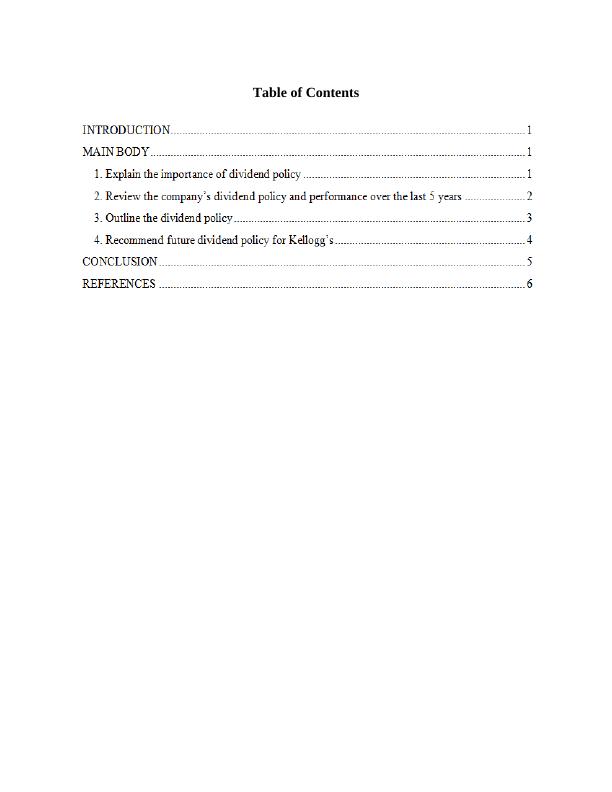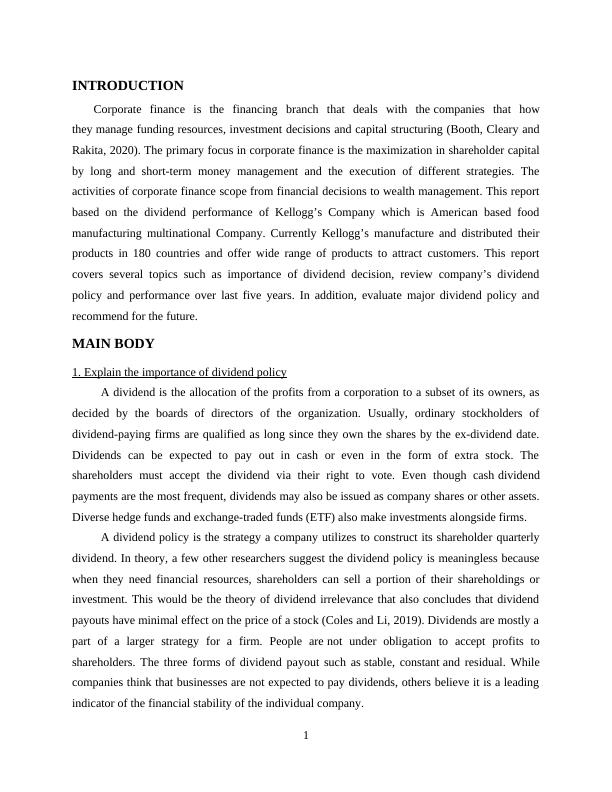Importance of Dividend Policy in Corporate Finance
8 Pages2228 Words80 Views
Added on 2023-01-09
About This Document
This report explores the importance of dividend policy in corporate finance and its impact on shareholder value. It reviews the dividend policy and performance of Kellogg's Company over the last 5 years. It outlines different types of dividend policies and recommends a future dividend policy for Kellogg's.
Importance of Dividend Policy in Corporate Finance
Added on 2023-01-09
ShareRelated Documents
End of preview
Want to access all the pages? Upload your documents or become a member.
Corporate Finance Analysis: Assignment
|4
|774
|49
Dividend Policy and Shareholder Satisfaction: A Case Study of Kellogg Co
|11
|2754
|36
Arguments for Determination of Payment of Dividends
|6
|859
|97
Assignment Fundamentals of Corporate Finance
|15
|3990
|72
Financial Management in Company (DOC)
|12
|3646
|25
Dividend Theories and Policies: The Relevance of the Policy on the Value of the Firm
|18
|6829
|483



